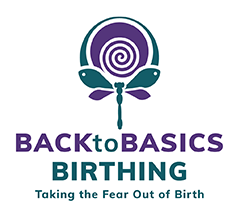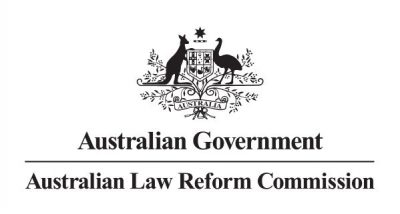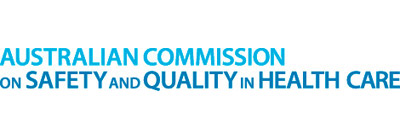Contact Vicki
If you have any questions or would just like more information please don't hesitate to get in touch by clicking the button below and filling out the contact form.
Contact Vicki

The rights of a pregnant woman anywhere in the world must be taken seriously, but for the purpose of being Australian and educating my local community I have put together some really important resources so that women have an easy reference point to go to and know that they do have rights, they can refuse treatment without recourse or shame and healthcare providers must be aware that a woman legally has the right to refuse consent and withdraw consent to medical treatments at any time.
The way a woman is treated during childbirth can and does have a life-lasting effect on her future, and the mental wellbeing of a pregnant woman is equally as important as her physical wellbeing.
Just because she is pregnant, in labour or giving birth does not mean she hands over her body autonomy to a medical professional and becomes just an incubator of her baby without rights.
Today in my news feed was a list by Crime Stoppers highlighting what legal terms were in Australia and their meaning.
For “ASSAULT & BATTERY” it said:
“Together, assault and battery are defined as unlawfully touching a person without their permission. Assault refers to an act that creates fear and a perceived ability for a threat to be carried out.”
Let’s think about this for a minute….is maternity care exempt from this Law?
Do you think it is NOT assault and battery if someone is forced to do something against their will out of fear, or being touched or having something done to them without consent? Maybe for care providers the lines have become grey because women haven’t been holding care providers accountable or reporting them for not gaining consent for performing medical interventions or touching their body without permission and that old chestnut “implied consent” because you have arrived at the hospital to have a baby.
The Law is not a set of guidelines or policies – the Law is mandatory and No means No.
All hospitals have policies and guidelines based on recommendations – but this does not mean these policies are the law and it does not mean that the woman has to consent to them, and it definitely doesn’t mean that she gives “implied consent” particularly if she has not been provided with all the risks and benefits of a recommendation to give “informed consent.” The policies and guidelines are there to protect the staff and hospital and once a woman has refused consent then this should be recorded on her file so that it covers that the hospital staff provided their recommendation, and the woman has not consented. I am also very clear with the women I work with that they have to own their choices. With choice comes responsibility and consequences – most times good, sometimes not so good – but they have to own their birth, not just choose something then backtrack if it doesn’t go the way they would have wanted. I also make it clear that they can change their mind at any time – the ball is always in their court.
Interestingly, in WA there is a Guideline called “Partnering with the woman who declines recommended maternity care” for women who are birthing in a hospital who choose not to agree to recommendations and how the care provider can work with that woman. However, it is not something that is readily offered to women to support their choices, but even more importantly something that is highlighted in these guidelines is “Women must not be denied access to maternity care because of their decision to decline recommended care” – so this is really important to know as a lot of women are worried that they will be told to leave if they don’t comply.
CLICK HERE TO GO TO FULL DOCUMENT

The Royal Australian and New Zealand College of Obstetricians and Gynaecologists (RANZCOG) are the governing body responsible for training, examining and registering obstetricians and gynaecologists in Australia and New Zealand.
CLICK ON THE LOGO TO GO TO THEIR WEBSITE
As I was reading through these guidelines, I came across the section titled “Duty to inform of risks” which I found really interesting because I have never come across a woman who has told me that her Obstetrician explained “the alternatives to the treatment” ……wouldn’t that change so many birth outcomes today and perhaps lower our extremely high caesarean rates in Australia?
You bet it would.
Here is an extract from that document:
“While the doctor is not required to burden a patient with unwanted information, the doctor is still obligated to explain the procedure to the patient (at least in broad terms), the alternatives to the treatment, the likelihood of a satisfactory outcome, and the more serious and common possible side effects or complications. Information should not be withheld from a patient unless the doctor believes that the patient’s physical or mental health could be seriously harmed by provision of the information.”
So, in other words, your Obstetrician should provide you with adequate methods of alternatives to treatment and also give you the opportunity to make an informed choice of what you want to do, not what they want you to do.
Here are the guidelines on consent titled “Consent and Provision of Information to Patients in Australia Regarding Proposed Treatment – March 2020.”
CLICK HERE TO GO TO FULL DOCUMENT
I have also included the National Guidance on Collaborative Maternity Care 2010.
This guideline has been released by:
The Australian Government
National Health & Medical Research Council
Department of Health & Aging
In this document it clearly states:
A woman decides who she involves in this decision-making process, be it a health professional, partner, doula, her extended family, friends or community (see Page 14, Box 2.2), and should be free to consider their advice without being pressured, coerced, induced or forced into care that is not what she desires (McLean and Petersen 1996).
Women have the right to decline care or advice if they choose, or to withdraw consent at any time. Therefore, if a woman declines care or advice based on the information provided, her choice must be respected (UNESCO 2005). Importantly, women should not be abandoned because of their choice (FPA Health and Read 2006, Faunce 2008; NHMRC consultations 2009).
CLICK HERE – NHMRC Maternity Guidelines 2019
You can also find the new NHMRC Pregnancy Care Guidelines on “Providing Woman-Centred Care in Maternity” that was published in 2019 by clicking HERE.
Even the Australian Medical Association (AMA) has it’s own Position Statement and Ethical Guidelines surrounding maternal decision making. The AMA is regularly interviewed by the media to comment on medical issues, particularly when it comes to maternity care, so we often see the President (or even past Presidents) giving their views on behalf of the medical fraternity and then the public see that as gospel. So let me make a point that most people would now think what I am about to share is credible, right? You can’t just pick and choose what is credible and what is not from the same publicly revered institution – right? So, here is one point made by the AMA based on their maternal decision making guidelines:
“A pregnant woman’s capacity to make an informed decision should not be confused with whether or not the doctor (medical practitioner) considers her decision to be reasonable, sensible or advisable. A doctor may not treat a competent pregnant woman who has refused consent to treatment. Recourse to the law to impose medical advice or treatment on a competent pregnant woman is inappropriate.”
CLICK HERE TO GO TO FULL DOCUMENT

The Australian Law Reform Commission (ALRC) is a federal agency that reviews Australia’s laws to ensure they provide improved access to justice for all Australians by making laws and related processes more equitable, modern, fair and efficient. The ALRC also provides a comprehensive resource about “informed consent to medical treatment” for all states and territories in Australia.
CLICK HERE TO GO TO FULL DOCUMENT
 The Australian Charter of Healthcare Rights was developed by the Commission in 2007 and 2008. The charter was developed with extensive and widespread consultation and specifies the key rights of patients and consumers when seeking or receiving healthcare services. In July 2008, Australian Health Ministers endorsed the charter as the Australian Charter of Healthcare Rights for use across the country.
The Australian Charter of Healthcare Rights was developed by the Commission in 2007 and 2008. The charter was developed with extensive and widespread consultation and specifies the key rights of patients and consumers when seeking or receiving healthcare services. In July 2008, Australian Health Ministers endorsed the charter as the Australian Charter of Healthcare Rights for use across the country.
The charter applies to all health settings anywhere in Australia, including public hospitals, private hospitals, general practice and other community environments. It allows patients, consumers, families, carers and service providers to have a common understanding of the rights of people receiving health care.
Dr Rachel Reed from Midwife Thinking also wrote an article about the law in Australia when it comes to maternity care. She states:
“It seems that many health care professionals are routinely putting themselves at risk of legal action in relation to information giving (or not as the case may be). Either they are unaware of the implications, or they think women will never hold them to account. This post is a very brief and basic overview of law (Australian) in relation to information giving. Although I have based the contents on McIlwraith & Madden (2010) the information is available in most law books and on the internet.”
To read this article CLICK HERE.
I have included a couple of good resources from international institutions as well that are relevant.
The NICE Guidelines are commonly referred to for management of previous caesarean section.
“This article looks at human rights in the area of maternity care, following a recent UK legal case. In the past it used to be that a doctor tells the patient what to do and the patient had no choice but to follow. Now, it is not enough for doctors, midwifes, nurses and others to recommend treatment, even though they may look at the scientific evidence when advising medical care. They must also listen to the women/patients and hear what they want and don’t want. Treatment that is both compassionate and based on medical evidence is connected to human rights in general, and should be taken in to account when decisions are being made about care.”
There is a lot being shared regularly in social media and many of the pregnancy and birth Facebook groups about the rights of the pregnant woman and more particularly the right to consent or not to consent to medical and obstetric procedures.
I have included a link to the handbook “Obtaining Valid Consent “Clinical Governance Advice No. 6” released in January 2015 by the Royal College of Obstetricians & Gynaecologists (RCOG). I believe this will be a very good reference for women to read if they feel they are being bullied, coerced and pressured into something they do not wish to do.
One section says:
“When consent has to be obtained from a woman during painful labour, such as to perform a vaginal examination, episiotomy, operative delivery or to site an epidural, information should be given between contractions. If appropriate, upon admission in labour or for induction of labour, consideration should be given to the provision of summarised information concerning possible procedures and interventions.Women should be encouraged to express their views on such procedures so that their carers are aware of the choices made by the women and act accordingly.”
CLICK HERE TO GO TO FULL DOCUMENT
There is also a very good article written by the Ethics Committee at the American College of Obstetricians & Gynaecologists, which states:
“The use of coercion is not only ethically impermissible but also medically inadvisable because of the realities of prognostic uncertainty and the limitations of medical knowledge. As such, it is never acceptable for obstetrician–gynecologists to attempt to influence patients toward a clinical decision using coercion. Obstetrician–gynecologists are discouraged in the strongest possible terms from the use of duress, manipulation, coercion, physical force, or threats, including threats to involve the courts or child protective services, to motivate women toward a specific clinical decision.”
CLICK HERE TO GO TO FULL DOCUMENT
Make sure you and your care providers are on the same page.
If they are not, then you need to make a choice to stay and have your birth choices stolen from you, or seek out alternative care.
Also keep in mind that recommendations for care providers from other people may not always be the best choice for you. It comes down to what kind of birth you want to have, and how far is your care provider willing to support you.
How do you find a care provider that is right for you – CLICK HERE.
Your first priority is to focus on your wants and needs for your birth and the different pathways for a positive birth. And yes of course, it goes without saying we know that birth is unpredictable, but all women should be educated and prepared for the different pathways a birth can follow – that is why you need a good birth plan and what you want from your care providers if your birth deviates from your ideal plan.
If you would like to know more about Birth Plans – CLICK HERE.
I believe all women should read and understand all the above information and resources. All women should compile a birth plan that they provide to their care providers in early pregnancy, so that they can be discussed and signed off – but more importantly so women have the opportunity and time to find alternative care if needed. Women should have a copy of these very important documents when they are discussing their birth plans, consent and withdrawal of consent with their healthcare providers and support people.
(Updated 05/05/23)
If you have any questions or would just like more information please don't hesitate to get in touch by clicking the button below and filling out the contact form.
Contact Vicki